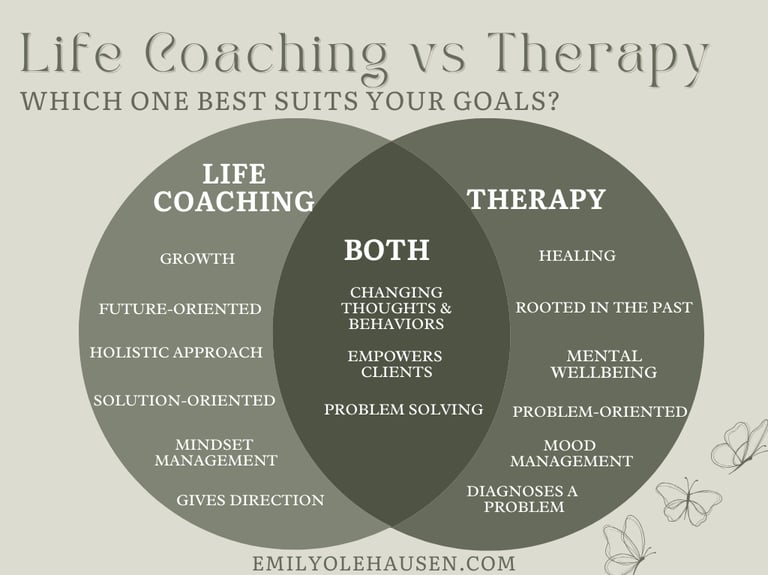So many women know something needs to change, but feel stuck trying to figure out what the next step even is. That’s where coaching becomes powerful.
When you begin prioritizing your own well-being (often for the first time in a long time), clarity starts to return. You reconnect with what actually gives you energy, and from that place, your life begins to feel lighter, more intentional, and more aligned. And yes, when you feel better, that ripple touches everything and everyone around you.
My role is to support you in coming back to yourself, quieting the noise, and creating meaningful progress toward the life you want, without pressure or perfection.
Real change doesn’t come from shortcuts.
It comes from showing up, noticing what’s not working, and choosing to do the work in a way that fits your real life.
Working with me as your coach is an invitation to begin a journey that expands your capacity for joy, peace, and presence. When you decide you’re ready, incredible things become possible.


Empowering Women To Find Themselves Again


How does coaching work?
In our first conversation, we’ll decide on a schedule that fits your life and your current season—meeting you exactly where you are, without pressure. For many women, this looks like three weekly one-hour sessions, followed by a week off to gently practice and integrate what you’ve learned.
This rhythm creates natural support and accountability, while giving you space to reflect, try things on, and notice what’s working.
Our sessions are about more than talking, they’re about helping you build awareness, shift patterns, and create meaningful change at a pace that feels sustainable. With simple, weekly action steps, you’ll begin to see that prioritizing yourself doesn’t require an overhaul, it’s something you can do in real, everyday life.


One of the most frequently asked questions...
What is the difference between life coaching and therapy?
Life coaching and therapy both aim to improve well-being, but they differ in focus, approach, and goals:
Focus:
Life Coaching: Primarily focuses on the present and future, helping clients achieve specific personal or professional goals, improve performance, and overcome challenges. It emphasizes growth, accountability, and action steps.
Therapy: Typically addresses emotional, mental, or psychological issues, often rooted in the past. Therapists work with clients to manage or overcome mental health conditions (e.g., anxiety, depression) and help them process past trauma.
Approach:
Life Coaching: Coaches guide clients by asking questions, providing motivation, and creating structured plans. The relationship is often more collaborative and goal-oriented.
Therapy: Therapists are trained to diagnose and treat emotional or psychological disorders. The process is more exploratory and focuses on healing, self-awareness, and understanding deep-rooted issues.
Goals:
Life Coaching: Helps clients set and achieve specific goals related to personal development, career, relationships, and overall life satisfaction.
Therapy: Aims to address and treat mental health issues, reduce emotional distress, and help clients manage or resolve trauma or psychological disorders.
Training and Qualifications:
Life Coaching: Life coaches do not need to hold formal psychological qualifications but often undergo specialized training programs.
Therapy: Therapists (psychologists, licensed counselors, etc.) typically have advanced degrees (Master’s or Doctorate) in psychology or counseling, with clinical training and licensure.
In summary, life coaching is more about helping clients achieve goals and enhance performance, while therapy addresses emotional healing and psychological well-being.
Get inspired monthly—join my circle for exclusive content!
Forget the clutter-I don't believe in just taking up space on your invisible list with no reason. In this newsletter I deliver genuine practical strategies that WORK so that you can work towards a life where you feel at peace, confident and fully present. Expect uplifting encouragement, thought-provoking questions, and ideas to implement these strategies in your real life.
Tough love, gentle delivery.
Come check out what you could learn for free!
How can I support you today?
© Olehausen Coaching 2024. All rights reserved.


